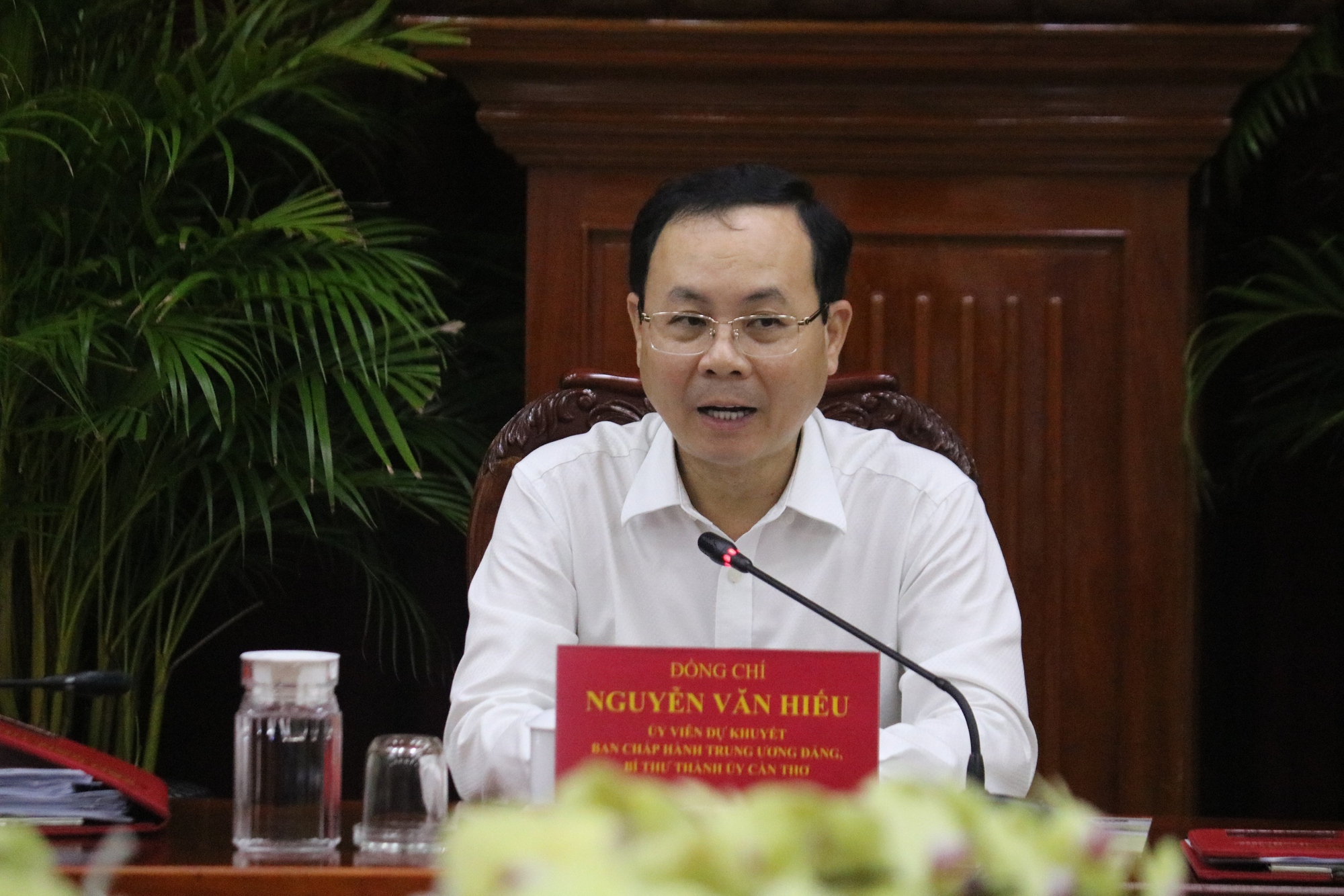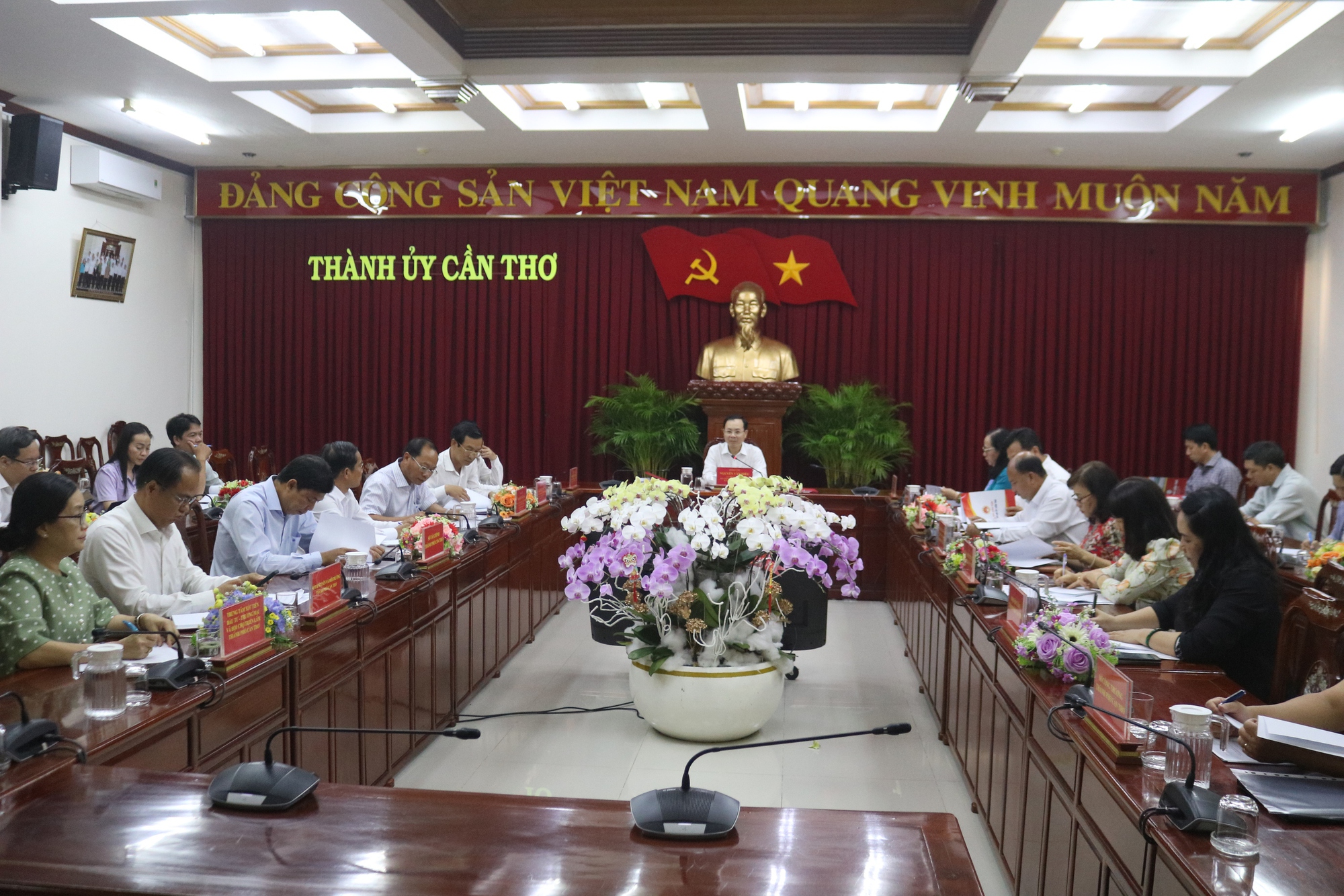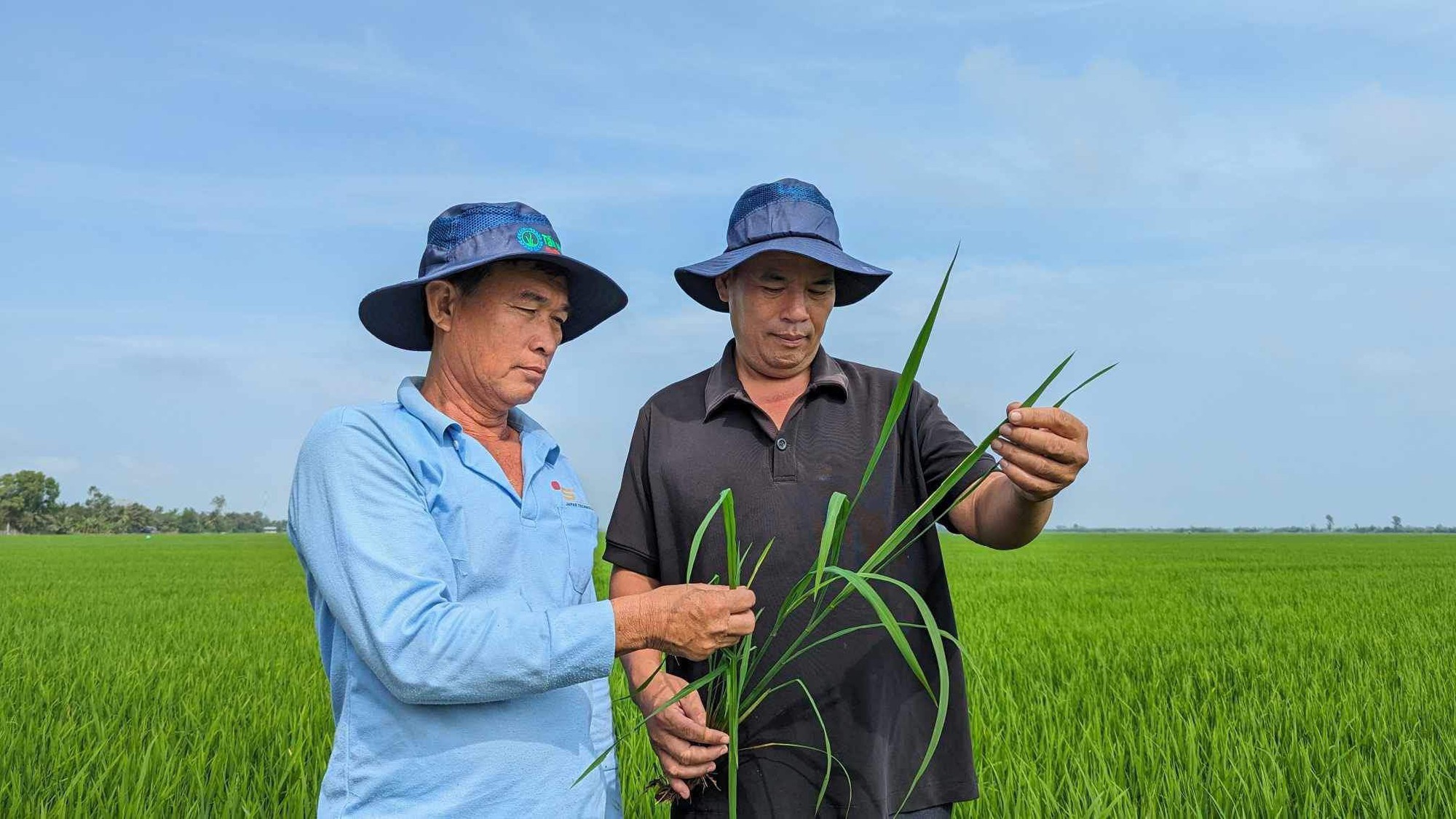On March 1-3, the Secretary of the Can Tho City Party Committee, Nguyen Van Hieu, had a working session with the city’s People’s Committee and departments regarding the development of the city’s agricultural sector.

Secretary of the Can Tho City Party Committee, Nguyen Van Hieu, speaking at the meeting
Mr. Nguyen Van Su, Director of the Department of Agriculture and Rural Development, stated that the growth rate of the city’s agricultural, forestry, and fishery sector during the period 2021-2023 is projected to be 2.81%, with a target of 3.22% in 2023. The sector’s contribution to the city’s GRDP will be 9.79% (the target set in Resolution of the 14th Party Congress of the city by 2025 is 5.6-5.9%).
The agricultural production has achieved some remarkable results, including the establishment of 140 large rice fields with an area of 36,000 hectares; the concentrated cultivation of fruit trees with an area of approximately 12,000 hectares (main products with high value: durian, longan, milkfruit, mango…), of which 600 hectares are certified VietGAP; the tra fish farming area with an area of over 900 hectares…
“Every year, about 1,500 hectares of rice-growing land are converted to other sectors of the agricultural industry, and the people have made the conversion in accordance with the guidance and planning of the agricultural sector. However, there are still some farmers who voluntarily convert without following the propaganda of the agencies and organizations,” Mr. Su said.

Scene of the meeting
Mr. Su gave an example that during the time when Thai guavas were in high demand and had high prices, many farmers converted their rice growing area or other crops to grow Thai guavas even though the agricultural sector did not recommend and did not subsidize this variety. When the price dropped, the farmers suffered losses. “The voluntary conversion is difficult to manage by the agricultural sector. The sector will actively coordinate with organizations and propaganda agencies to help farmers understand and perceive the direction and planning of the sector,” he added.
Secretary of the Can Tho City Party Committee, Nguyen Van Hieu, believed that if there is already a plan and direction but the farmers still engage in spontaneous production, it is due to poor management. He requested the departments and agencies to find a way forward, as at present, telling the farmers to do something without any policy support will not work.

Bí thư Nguyễn Văn Hiếu đề nghị Sở Nông nghiệp và Phát triển nông thôn xây dựng chính sách tạo đòn bẩy để phát triển ngành nông nghiệp
Secretary of the Can Tho City Party Committee, Nguyen Van Hieu, stated that farmers are very practical and if they receive benefits and support, they will participate immediately. If the government tells them to do something without any support, they will engage in spontaneous production for a reason. Therefore, he proposed that the Party Committee and the Department of Agriculture and Rural Development develop policies to create leverage and promote the transformation and development of the city’s agriculture sector, such as support for seeds, crops, livestock…
At the same time, the Party Committee and the Department of Agriculture should work closely with the Investment Promotion and Trade Fair Center to create a specialized website promoting the city’s agricultural products and promote the connection between businesses, farmers, and banks…
In parallel, the Party Committee and the agricultural sector will closely follow the important targets set in the Resolution of the 14th Party Congress of the city to accelerate in 2021; among which, the contribution of the agricultural, forestry, and fishery sector to the GRDP must decrease from the current 9.79% to below 6% by 2025.












